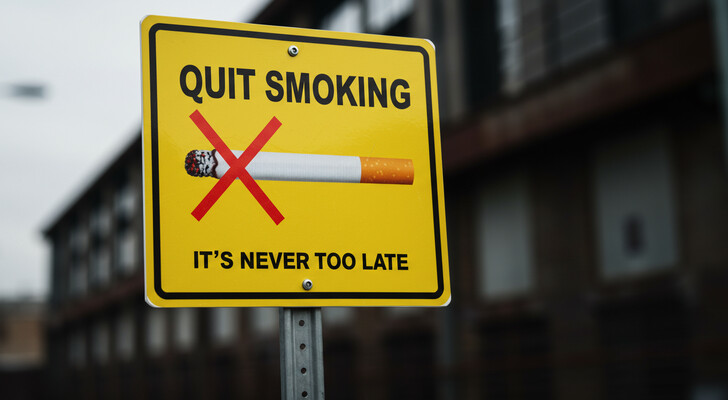
Smoking doesn’t just take years off your life. It also impacts the people and pets you love. Every cigarette brings harmful chemicals into your body, raising the risk of serious disease while spreading toxins to family members, children, and even household pets. The good news is that quitting has immediate and long-term benefits, and with modern methods, support, and resources, it’s more achievable than ever before. Understanding the health rewards, financial savings, and overall improvements in quality of life can make the decision to quit smoking one of the most powerful choices you’ll ever make.
Health Benefits of Quitting Smoking
The moment you put down your last cigarette, your body begins to recover. Within just 20 minutes, heart rate and blood pressure start to drop. By 12 hours, carbon monoxide levels in the blood return to normal. After a few weeks, circulation improves and lung function becomes stronger, making physical activity easier. In the following months, coughing and breathing problems often decrease as the lungs repair themselves. One year after quitting, the likelihood of developing heart disease is dramatically lower. Between five and ten years later, the risk of stroke becomes similar to that of a non-smoker. By the ten-year mark, the risk of dying from lung cancer is cut in half, and after fifteen years, the chance of coronary heart disease is nearly the same as someone who never smoked at all. These milestones prove that no matter your age or smoking history, quitting allows the body to heal and extend life expectancy.
The Cost of Quitting vs. Smoking
Although some people worry about the expense of quit-smoking aids, the financial burden of continuing to smoke is far greater. The average smoker in the United States spends thousands of dollars every year on cigarettes alone. On top of this, smoking-related diseases often bring costly medical bills and hospital visits. Quitting smoking can save an individual anywhere from $2,000 to more than $4,000 annually, depending on smoking habits. While there may be initial costs for nicotine replacement therapies or prescription medications, many state programs, quitlines, and health insurance plans provide these resources at little to no cost. Compared to the lifelong expenses and health damage linked to smoking, the cost of quitting is a small price for a healthier and longer life.
Methods That Help People Quit
There is no one-size-fits-all solution to quitting, but several proven methods can significantly increase the chance of success. Nicotine replacement therapies, such as patches, gum, and lozenges—help reduce withdrawal symptoms and cravings. In 2025, a 28-pack of nicotine patches typically costs between $25 and $70, while generic prescription versions may run about $95 for two boxes, though discounts can lower the price considerably. Under current healthcare laws, most employer-sponsored insurance and Medicaid programs cover FDA-approved quit-smoking medications, though coverage details may vary. Beyond patches, prescription medications such as varenicline (Chantix) and bupropion (Zyban) can support quitting by altering brain chemistry linked to nicotine cravings. Counseling and behavioral therapy, whether in groups, individually, or through phone-based quitlines, provide valuable emotional support and strategies to stay smoke-free. Many also turn to smartphone apps and text-based programs for daily motivation. Research shows that combining medication with counseling is one of the most effective paths to long-term success.
The Dangers of Secondhand Smoke
Even if you don’t smoke directly, exposure to secondhand smoke can be life-threatening. This combination of smoke from a burning cigarette and a smoker’s exhale carries the same toxic chemicals that cause cancer and respiratory disease. Children, pregnant women, and individuals with existing health conditions are especially vulnerable. Secondhand smoke has been linked to sudden infant death syndrome (SIDS), asthma flare-ups, chronic respiratory infections, lung cancer, heart disease, and complications during pregnancy. Quitting smoking not only improves your own health but also creates a safer environment for your loved ones, protecting them from unnecessary and preventable harm.
How Smoking Affects Pets
The harmful effects of smoking aren’t limited to humans. Pets face serious risks too. Animals exposed to secondhand and thirdhand smoke (the residue left on surfaces and fur) inhale and ingest dangerous chemicals. Cats are more likely to develop oral cancer and lymphoma, especially as they groom themselves and swallow toxins from their fur. Dogs in smoking households have a higher risk of lung cancer or nasal cancer, depending on their breed. Birds, with their fragile respiratory systems, can suffer severe lung problems or even sudden death from smoke exposure. Quitting smoking not only benefits your health but may also save the life of your furry or feathered family members.
The Risks of Continuing to Smoke
Every year spent smoking increases the damage to your body and makes it harder to repair. Long-term smokers face a much higher risk of cancer, not just lung cancer but also cancers of the mouth, throat, bladder, kidney, pancreas, and stomach. The risk of heart disease and stroke remains significantly elevated, with smokers being up to four times more likely to develop coronary heart disease than non-smokers. Chronic bronchitis, emphysema, and overall lung decline are common, leading to breathlessness and reduced quality of life. A weakened immune system also means smokers are more prone to infections, and their recovery from surgeries or injuries is often slower. On average, smokers die at least ten years earlier than non-smokers, underscoring the devastating cost of continuing the habit.
Conclusion
Quitting smoking is a life-changing decision with benefits that begin within minutes and continue for decades. It protects your health, reduces financial burdens, safeguards your family, and even spares your pets from harmful toxins. While the process may feel difficult, countless resources, from nicotine replacement therapies to counseling and support groups are available to guide you through each step. Millions of people have quit successfully, and you can too. The sooner you stop smoking, the sooner you give yourself and those you love the gift of a healthier, longer, and smoke-free life.


